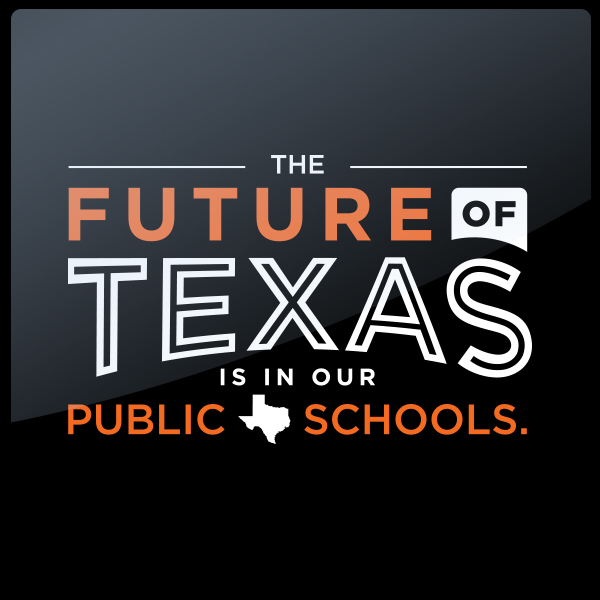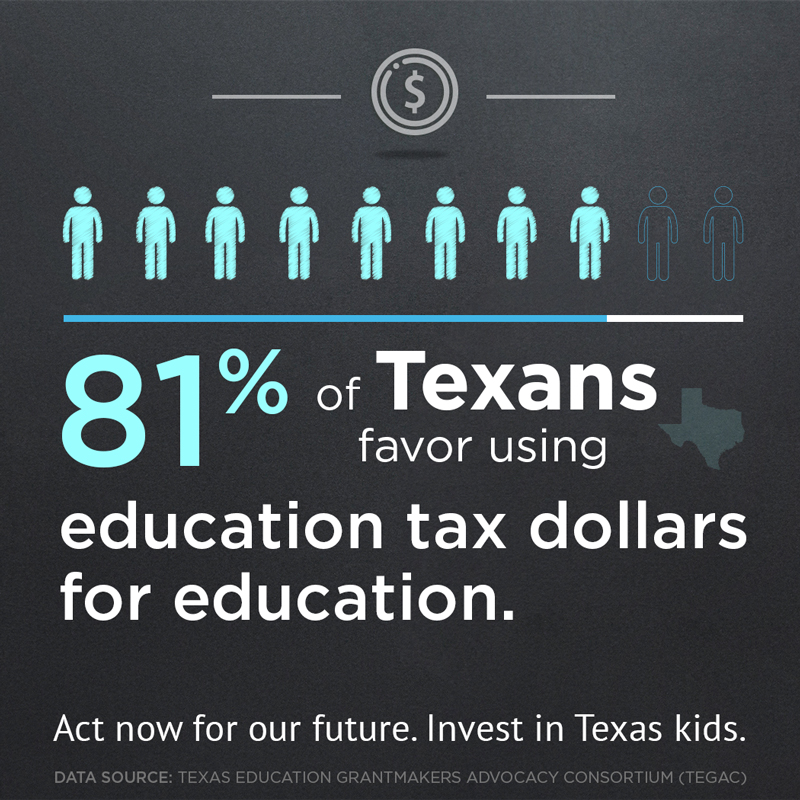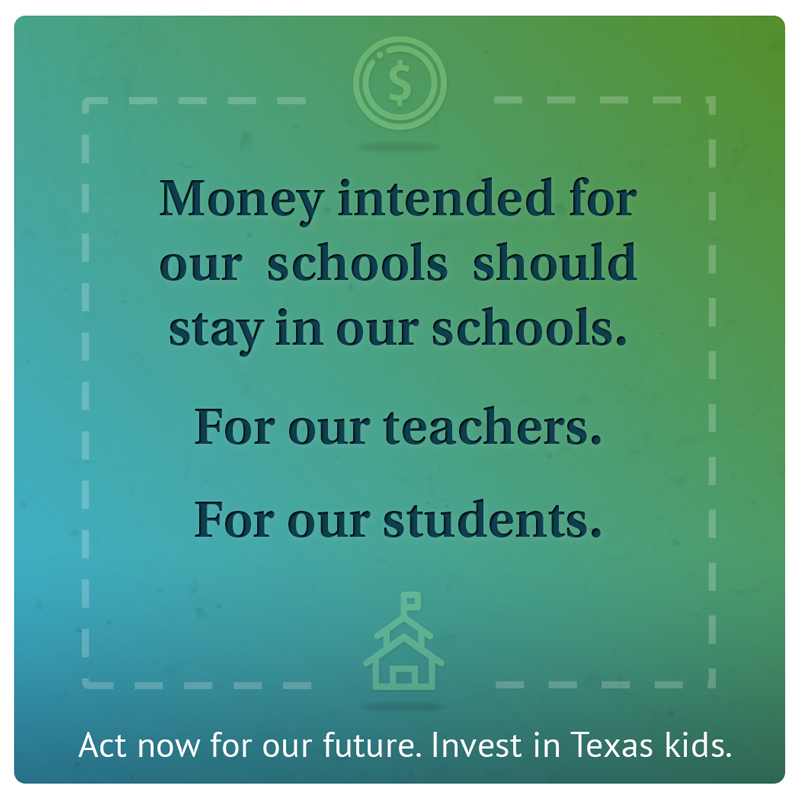
categories
Reading Between the Line Items: Three things TEA’s budget request tells us about our public school system

September 11, 2018
- The Texas public school system is large and continues to grow. Schools districts and charters educate more than 5.3 million students in 8,700 schools across our state and employ approximately 350,000 educators. The system is large and growing and needs significant resources and that is not going to change. Student enrollment is projected to increase once again in the next budget, placing additional demands on schools and teachers.
- The Texas public school system has changing needs. The student population is more diverse and more economically disadvantaged than ever before. Changing student needs coupled with calls for greater gains in student achievement and post-secondary success will require additional support.TEA reports only 25 percent of Texas high school graduates complete a bachelor’s, associate, or trade credentialing program within 6 years of high school–far from the goal of the state’s 60X30TX plan (60 percent of 25 to 34 years olds will hold a certificate or degree by the year 2030).It is imperative our state meet these expectations so our students can compete in the workforce both nationally and globally. Our state’s funding of public schools ranks 43rd in Education Week’s latest Quality Counts report and without significant investment we will continue to fall behind.
- The Texas public school system needs additional state investment. The school finance system uses a mixture of local and state sources to fund public schools. Local funds are primarily from one source — school district property taxes. State funds include a complex combination of sources including general revenue, recapture or “Robin Hood” payments, and lottery proceeds.This budget request magnifies an unsustainable trend in this mixture of funding sources. The system relies too heavily on local tax dollars to offset state costs. In our school funding system, just because local property values increase does not mean overall school funding increases. In fact, as local property values increase, the state share of funding decreases, leaving the overall funding for schools the same. By 2019, local property taxes will provide 62% of the funding for our state’s public education system. The state funding share will continue to decline to historic lows given the assumptions in this budget request. In the request, the state saves an estimated $3.7 billion in general revenue ($1.4 billion in All Funds) in the Foundation School Program (FSP) primarily due to increase revenues from local property value growth. School district recapture payments increase an estimated $2.3 billion, from $4.8 billion to $6.9 billion. This savings to the state occurs even after enrollment growth and certain program increases are funded. There is no mechanism in this budget request to reinvest any state savings back into public schools.
The Takeaway
Now is the time to invest additional resources in our public schools. Reinvesting state savings due to local value growth back into our public schools would support innovative and impactful programs, including full-day pre-kindergarten.
For more information on the TEA Budget Request visit: Texas Education Agency’s Legislative Appropriations Request (LAR)
PLEASE SHARE THESE GRAPHICS ON YOUR OWN SOCIAL MEDIA CHANNELS

Read our new blog about how @TEA estimates the state is on track to save $3.7 billion in general revenue in the FSP due to increased property tax revenue. #InvestInTxKids #TxLege #TxEd

@TEA estimates the state is on track to save $3.7 billion in general revenue in the FSP due to increased property tax revenue. #InvestInTxKids #TxLege #TxEd

Read our new blog about how @TEA estimates the state is on track to save $3.7 billion in general revenue in the FSP due to increased property tax revenue. #InvestInTxKids #TxLege #TxEd

@TEA estimates the state is on track to save $3.7 billion in general revenue in the FSP due to increased property tax revenue. #InvestInTxKids #TxLege #TxEd



